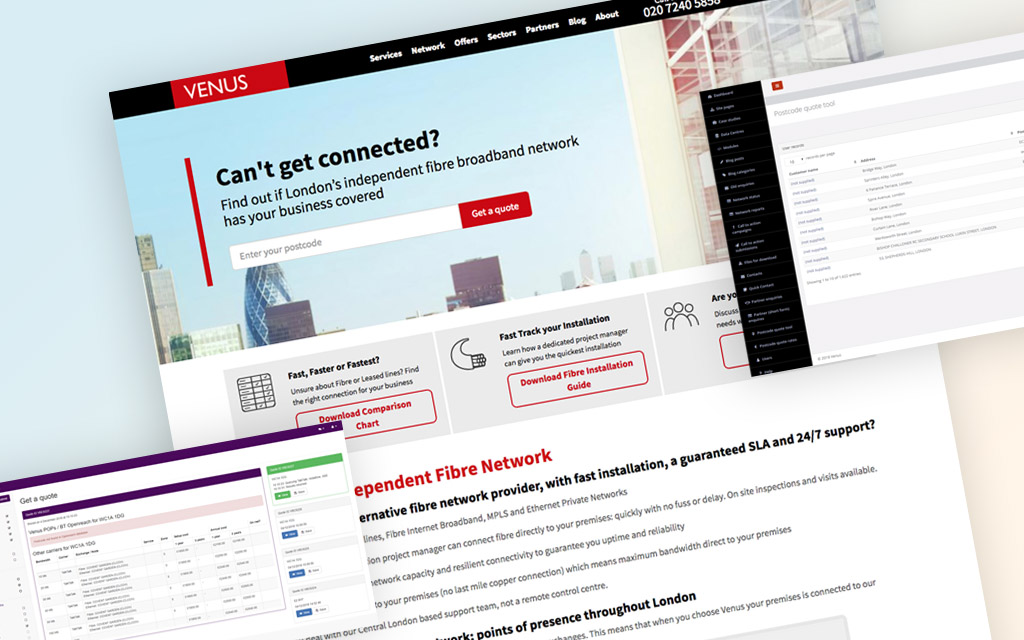Keep your eye on these SEO trends in 2020:

When managing a website, it’s important enough to optimise its SEO; however, as SEOs, we have to keep an eye on the times.
Google has changed its search feature over the last 12 months, which had a knock-on effect on how we produce and manage our campaigns.
Let’s look at the SEO trends we should look out for in 2020:
Content
We touched on this a bit in last week’s blog, however, it’s worth re-discussing.
It’s important to write useful and high-quality content rather than using bad techniques such as keyword stuffing and spitting out poor content just to game the system.
Google is getting better at understanding and analysing the content you write, so keep users engaged! It’s essential for rankings.
Snippets and On-SERP SEO
In short, a ‘snippet’ is information you see when you conduct a search result on Google.
A ‘rich snippet’ is the result, but with extra information added:
![]()

See here how the search result included a rating and reviews? These are more eye-catching than normal search results – which leads to higher CLR.
Whereas a ‘featured snippet’ is one that provides users with a concise, direct answer to their query. You always see these at the top of a search result, above the first organic result.
Rich and featured snippets have been around for a while now. These have made significant changes to Google’s SERP (Search Engine Results Page).
(When we say On-SERP SEO, we mean providing content that is optimised for a search engine’s results page)
The reason snippets are so important to marketers is that they also contribute towards SEO. If you’re not providing the right kind of information you want to be ranked for, then your page might rank lower.
Installing snippets is required for any business as it gives a short introduction of your service or product. Also, by optimising keywords helps you rank higher on search engines, it’s important.
Mobile-First Indexing

It’s very important to optimise for mobile.
Why? Last year, Google announced that all pages will be indexed using ‘Mobile-First Index’. This means that it will look for a mobile version of a page when determining rankings.
Google is now considering mobile websites as the main pages of websites. 52.6% of users viewed websites on mobile in Q4 2019, and the number is only going to grow.
Because of this, mobile sites must contain the same content as their desktop equivalents.
Until recently, you could only see the most important content on a mobile screen. With the arrival of Mobile-First Indexing, all content needs to be optimised for mobile.
Google will rank you lower if you don’t have a mobile site or you have a broken or incomplete one. Reversely if you have a fully-functioning mobile website, you may see your rankings push higher!
A couple of tips or mobile-friendly content:
- Limit paragraphs to two or three sentences
- Organise content with headings and subheadings (Your CMS will love this too)
- Use bullet points or lists where appropriate (Like we have here)
It is also important that you optimise loading speeds, no one wants to wait 30 seconds to read your content!
Optimise for local SEO
Local SEO is a hot topic for Google right now and it makes sense – after all, we all look for things that are close to us!
You need to optimise your homepage for who you are. It should clearly state where you’re located and what services you offer. Make it clear for Google to understand these elements by optimising your title tag, header tag and meta description appropriately.
if you use WordPress as your CMS, you’ll probably be familiar with the Yoast SEO plugin. Yoast allows you to edit your SEO Title and Meta description accordingly to where you are.
You can alter your metadata akin to where you are, so if you are a web developer in Clapham for example, you would include these details in your SEO title and meta description.
It’s important to ensure that you localise your metadata and title tags, you want to make your customers know where you’re based!
Finally, if you haven’t already, claim your Google My Business page. It’s probably the most important thing to optimise for local SEO – especially for your SERP results.
We hope these SEO trends will help you with optimising your SEO in 2020. If you are looking for a complete SEO solution to help your business, we can help! Call us on 020 3011 0390 or email us at hello@artonezero.com.



